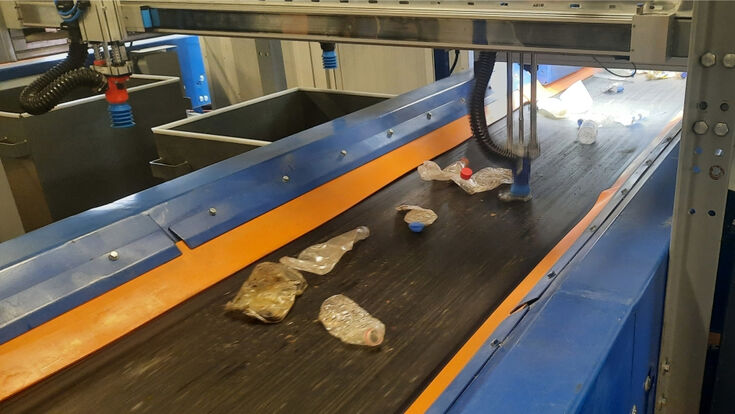The Essential Role of Proper Liquid Waste Elimination Strategies in Waste Monitoring
In the world of waste monitoring, the value of using appropriate fluid waste elimination approaches can not be overemphasized. The complex internet of interconnected environmental, health and wellness, and security considerations rests on the efficient administration of liquid waste. From securing our ecological communities versus contamination to promoting public wellness requirements, the proper disposal of liquid waste plays a crucial duty in preserving a healthy and balanced and sustainable environment. This crucial duty prolongs past simple waste removal, impacting a multitude of fields and elements of our day-to-days live. It is within this structure that the application of sound fluid waste removal techniques stands as a keystone of accountable waste management methods.
Importance of Appropriate Fluid Waste Removal
Why is proper liquid waste removal important in preserving public and ecological wellness criteria? Correct fluid waste elimination is essential for protecting the atmosphere and supporting public health and wellness requirements.
Ecological Advantages of Efficient Methods
Carrying out reliable fluid waste elimination methods not just safeguards the atmosphere however likewise plays a vital function in preserving public health and wellness requirements. By using proper techniques, such as advanced filtration systems and liable disposal approaches, the ecological advantages are considerable. One of the primary benefits is the avoidance of contamination of natural water resources. Incorrect disposal of liquid waste can cause contaminants leaking into the soil and at some point getting to groundwater storage tanks, influencing both human health and wellness and environments.
In addition, efficient liquid waste elimination techniques assist mitigate the risk of waterborne illness. By guaranteeing that harmful compounds are not released into water bodies, the spread of conditions brought on by polluted water can be lessened. Proper waste administration techniques contribute to the preservation of marine life. Harmful chemicals in fluid waste can have detrimental impacts on aquatic and fresh water microorganisms, interfering with communities and biodiversity.
Health And Wellness Ramifications of Inadequate Elimination
The destructive health implications related to insufficient fluid waste elimination emphasize the critical importance of proper disposal techniques and efficient administration methods. Inappropriate elimination of fluid waste can cause the contamination of water resources, posturing significant wellness threats to both human beings and wild animals. When fluid waste consisting of dangerous chemicals, virus, or various other contaminants is not effectively eliminated and treated, it can leak into groundwater, rivers, and oceans, endangering the top quality of alcohol consumption water and water environments.
Exposure to contaminated water due to poor fluid waste elimination can result in various health issue, consisting of intestinal diseases, skin infections, respiratory concerns, and also much more severe problems such as body organ damage or neurological problems. In addition, the release of untreated fluid waste right into the environment can add to the spread of waterborne illness, creating public wellness dilemmas that require substantial resources to address.
Consequently, applying appropriate liquid waste elimination methods is important to safeguarding public wellness and preserving the integrity of environments. Industrial waste water treatment. By prioritizing reliable waste administration methods, we can reduce the health dangers connected with insufficient fluid waste removal and advertise a healthier atmosphere for all
Role in Stopping Water Contamination
Efficient liquid waste elimination strategies play a critical function in preventing water contamination and guarding public health and wellness. Improper disposal of liquid waste, such as untreated sewer you can try these out or industrial effluents, can cause the contamination of water sources, presenting serious threats to human health and the setting. When liquid waste is not sufficiently removed and treated, unsafe substances can permeate into groundwater, rivers, and oceans, infecting drinking water materials and aquatic communities.
Infected water can carry a variety of toxins, including microorganisms, hefty metals, and chemicals, that have the prospective to create waterborne diseases, environmental damages, and lasting health impacts in human beings and wild animals. Proper liquid waste elimination strategies, such as wastewater treatment plants, septic systems, and industrial effluent therapy centers, are essential for eliminating or reducing the effects of unsafe contaminants before they can go into water bodies.
Making Certain Safe Disposal Practices
Ensuring proper disposal techniques for fluid waste is necessary to helpful hints secure water sources and public health from contamination threats. Appropriate containment and storage of fluid waste are vital to stop leaks or spills that can permeate into the soil and infect groundwater resources.

Final Thought
In final thought, appropriate liquid waste elimination strategies play a critical duty in waste monitoring by stopping environmental contamination and protecting public health. Reliable elimination methods ensure the secure disposal of liquid waste, minimizing the adverse effect on communities and water sources. It is essential for individuals and sectors to embrace responsible techniques to reduce the harmful results of inappropriate liquid garbage disposal.
In the world of waste management, the value of using proper liquid waste elimination methods can not be overemphasized. It is within this structure that the implementation of audio fluid waste removal strategies stands as a foundation of responsible waste administration practices.

Comments on “Browsing Liquid Waste Difficulties with Reclaim Waste Melbourne's Expertise”